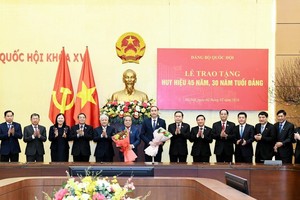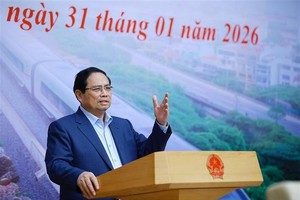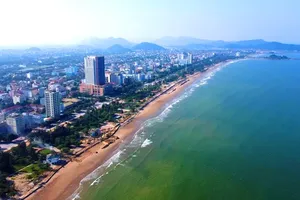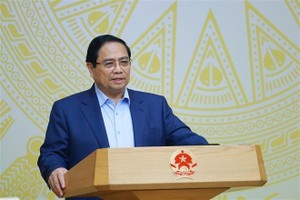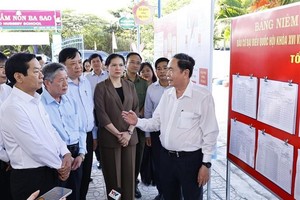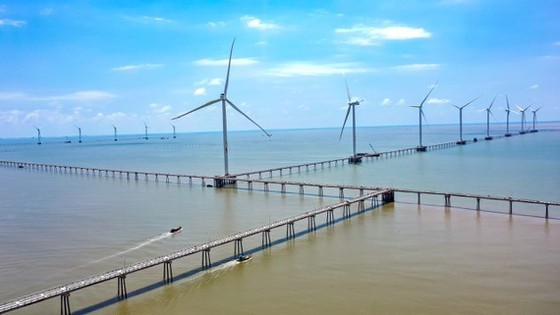 |
Dong Hai wind power project in Tra Vinh Province. (Photo: SGGP) |
Vu Chi Mai, an expert from the German Agency for International Cooperation (GIZ), said that with its incentive mechanisms, Vietnam has rapidly developed solar and wind power sources, bringing the proportion of renewable energy to nearly one-third of the installed capacity of the national power system.
However, bringing those energies to the national grid faces limitations because the transmission system is often at full capacity. In addition, to promote the available capacity of these clean power sources, Vietnam must invest in more stable and flexible power sources such as pumped hydropower storage or storage systems for solar power plants.Another big challenge is that during the energy transition, the replacement of traditional fuels from gasoline, coal, and gas to electricity is huge.
On the positive side, it will help reduce emissions to the environment, but this puts great pressure on the electricity industry, both in operation management and in the concerted development of the power system associated with energy efficiency.
Nguyen Anh Tuan, an energy expert, also said that Vietnam is undergoing a strong energy transition with the rapid participation of wind power and solar power which are uncertain sources as they rely on weather conditions and locations that are not always ready for power generation.
When their proportion in the country’s power generation structure is higher, it will pose challenges for managers and operators of power systems and lines. Therefore, to accelerate the energy transition to greener, cleaner energies, it is necessary to develop a forecasting tool to balance the demand and generation capacity of renewable energy sources.
However, according to Tuan, without careful calculations on the transition from fossil fuels to the electricity in industries like transportation or construction, the risk of power shortage is great, not to mention the energy transition will not progress as expected.

